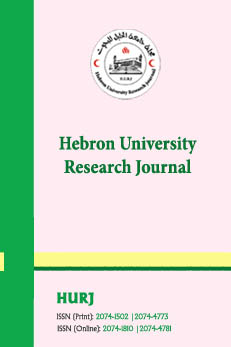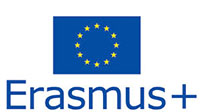IT & Systems Management
Course Description
View Course description as PDF file:
Compulsory Requirements
T1711 Strategic Planning for Information Systems
This curricular unit aims to understanding strategy, strategic models and know how to define strategic plans for Information Systems in dynamic and complex environments. Students are intended to achieve deep knowledge related to the management activities of the organization's information systems portfolio, covering the planning, development and exploitation stages, in an integrated life cycle management perspective. It is intended that the student understands the nature of the different typologies of systems suitable for each context, analyzing them in terms of effectiveness, value and benefits for the organization, in order to adapt the methodologies of development and acquisition, implementation and maintenance
T1712 Systems and Technologies 2.0
This curricular unit aims to discuss the concepts, principles, techniques, and methods of systems and technologies 2.0 and how to exploit these technologies in business and organization management. Learners is intended to achieve deep understanding of Web 2.0 technologies in which content is created, shared, remixed, repurposed, and passed along. Learners will also explore web 2.0 applications (e. g., Blogs, Wikis, Social Networks, Social Bookmarks, Podcasts, RSS Feeds, Photo Sharing) and other Web 2.0 technologies and analyze their benefits in managing businesses and government institutions.
T1713 Data communication Networks and Security
Students should acquire deep knowledge about computer networks and problems related to Data Communications and Security between computers in a network; analyze ways of planning, installing and configuring computer networks, as well as the protocols necessary for their correct functioning; address concepts of unified networks and performance optimization. In addition, students identify the main vulnerabilities and threats to the information flow between network computers, as well as the most adequate counter measures
T1716 Advance Statistics and Research Methods
The purpose of this course is to provide students with the necessary competences, in order to develop a master thesis based on quantitative methods such as Basic notions of descriptive statistics Population and sample, Frequencies table, Graphic representation of data, Localization parameters, Dispersion parameters, Symmetry parameters, Curtose measures, and Applications with SPSS. students will understand correlation and Linear Regression. Graphic representation – dispersion diagram. Covariance and correlation Simple linear regression models. Besides, the course will establish the foundations of research methodologies by exploring critical exploration of research language, ethics, and approaches. The course introduces the methods of research, ethical principles and challenges, and the elements of the research process within quantitative, qualitative, and mixed methods approaches
T1717 Information Systems Acquisition, Evaluation, and Development
The course will give students an introduction to the models for obtaining new information technologies and systems and evaluating Information systems items. Besides explaining the methods and processes for developing information systems such as SSM, SSADM, and Scrum, benefits and associated risks related to these methods and the applicability of the appropriate evaluation model Competences are also discussed. Methods and processes for acquiring information systems like IEEE Recommended Practice for Software Acquisition, and CMMI® Acquisition Module(CMMI-AM) are also covered. The advantages and risks of the methods presented are discussed as well
T1724 Informatics Project Management
This curricular unit aims to introduce the fundamental principles related to Software Project Engineering; Provide future professionals with a set of rules, methods and tools essential to an effective conduct during the execution of software development projects; Have a global perspective of the software process (life cycle); Know how to specify and document a software development project; Know how to apply notations and software modeling languages; Conceive, specify and develop a software project
T1733 Procurement Support Information Systems
Organizations are able to create value on the basis of the effectiveness and efficiency of their activities, especially sales, production and procurement. The main objective of this curricular unit is to Understand the inherent issues of the purchasing function; Acquire knowledge to a successful implementation of e-procurement systems; Understand the principles of E-Commerce and Electronic Data Interchange
T1735 Information Systems Implementation and Change
The main objective of this curricular unit is provide students with knowledge that will allow them to fit Information Systems Management into the company's strategy, with emphasis on governance, planning and implementation aspects; Apply reference models, good practices and methodologies that allow analyzing maturity, making investment decisions and organizing IT services, with a view to optimizing the selection, implementation and performance evaluation of information systems in the organization; Know how to manage the organization's information systems portfolio, from an integrated lifecycle management perspective, characterizing the opportunity, potential and risk of projects; Know how to select and apply governance, investment assessment, change management and IT service management standards
T1738 Decision Support Systems
The main objective of this curricular unit is to enable students to know the aspects inherent to information in the decision-making process; understand the historical evolution of DSSs; Know techniques and technologies associated with DSS; knowing how to identify the main techniques and technologies associated with DSS; knowing how to model data structures; knowing how to identify DSS techniques and technologies in an organizational context; Explore algorithms in new situations
T1740 Thesis
Intended learning outcomes of the curricular unit:
Students must show sufficient knowledge and ability to write a dissertation of scientific nature that is original and specifically created in order to achieve the academic degree of master. The written dissertation must be of good quality, contribute to the advance of scientific knowledge in its area of study and be worthy of the approval of a specifically appointed committee, according to legal stipulations, that will evaluate the thesis and discuss it with the author





